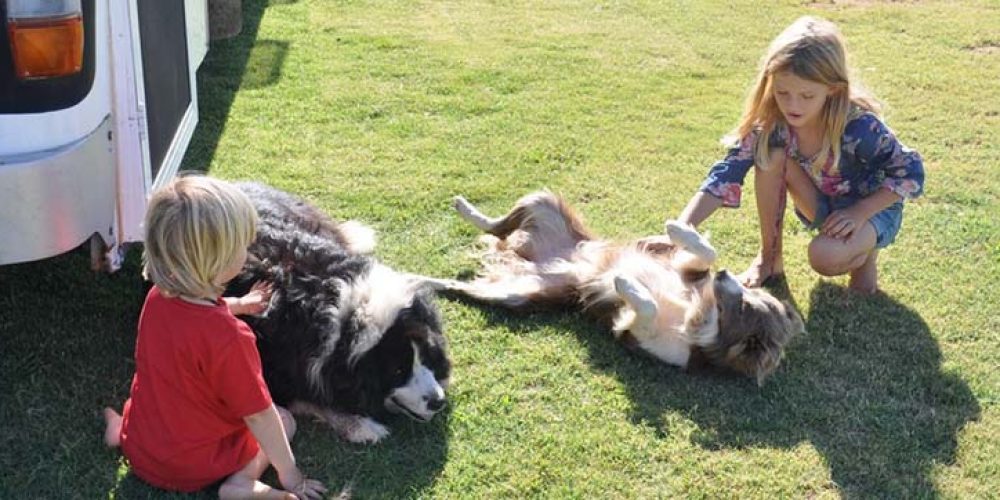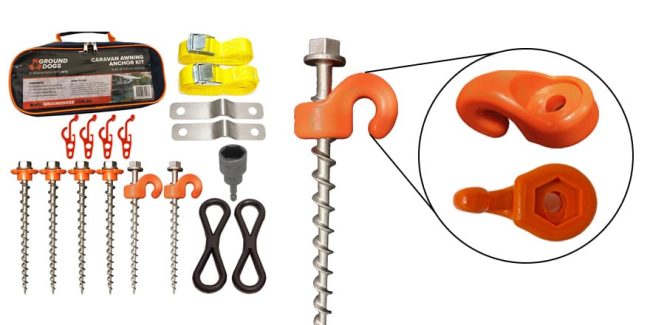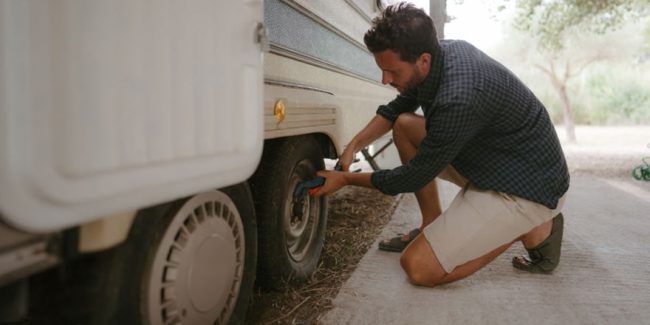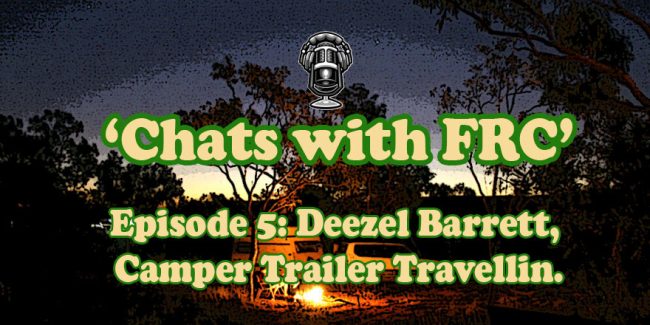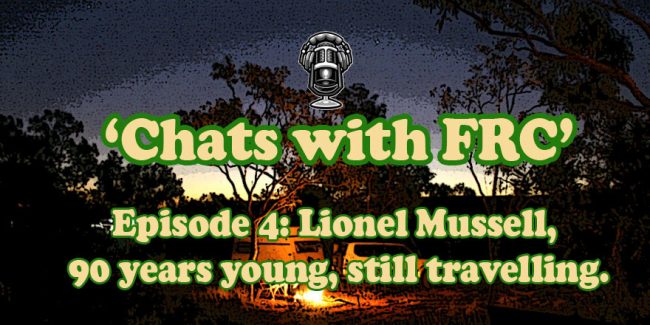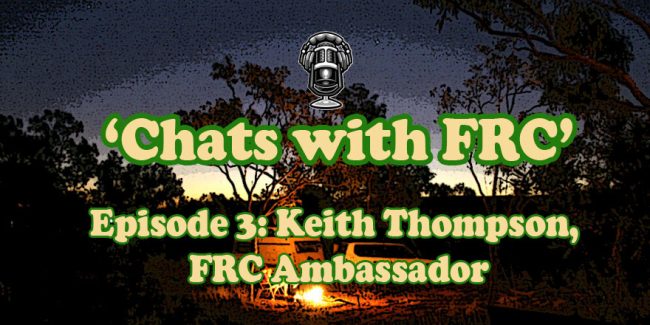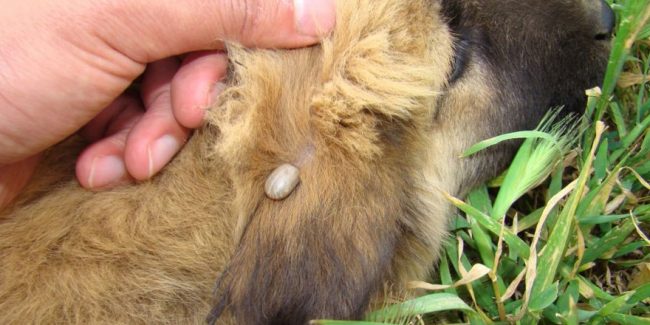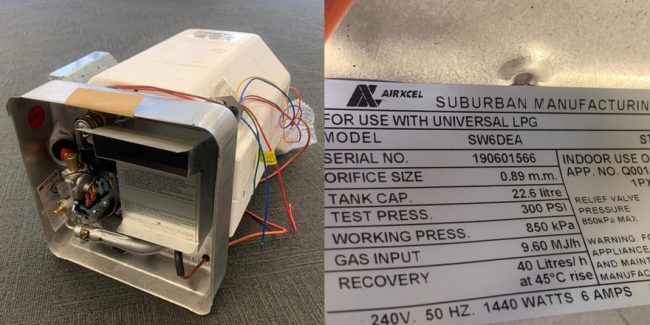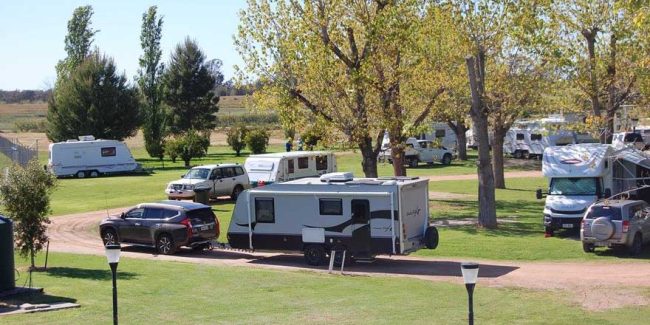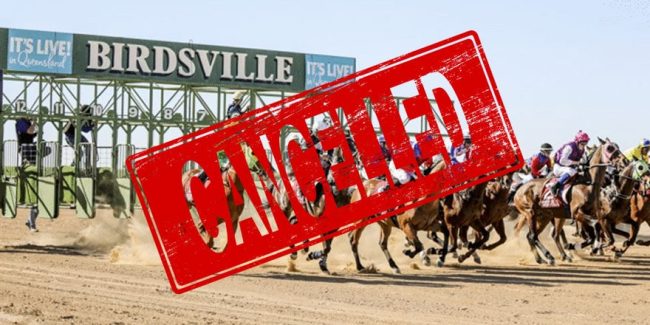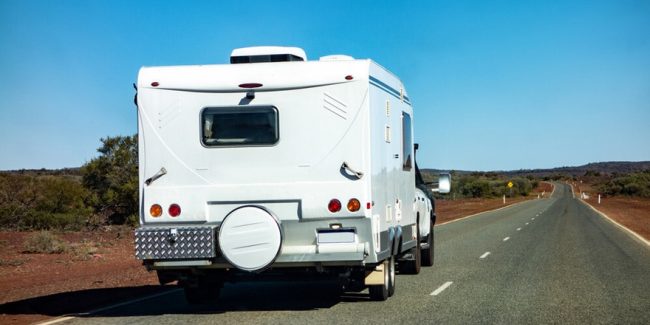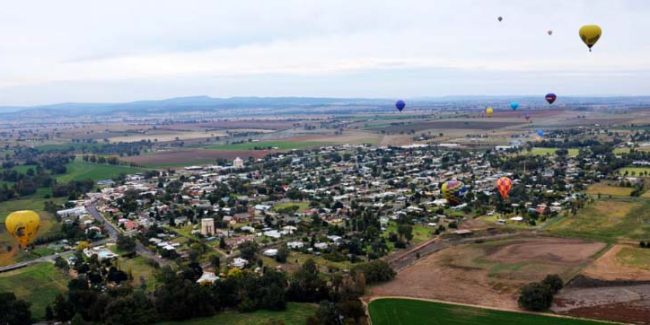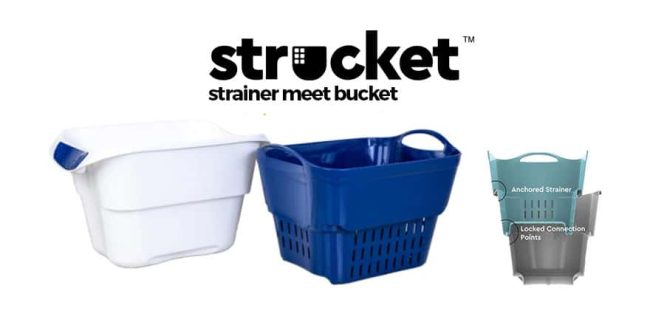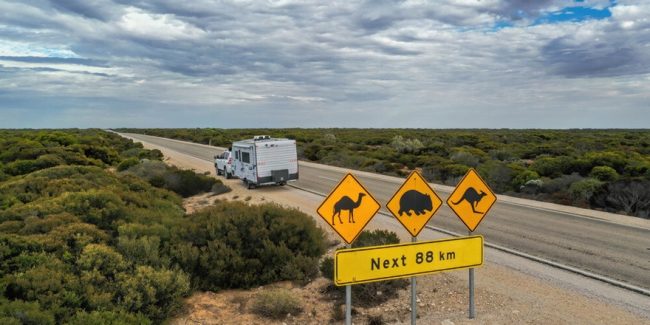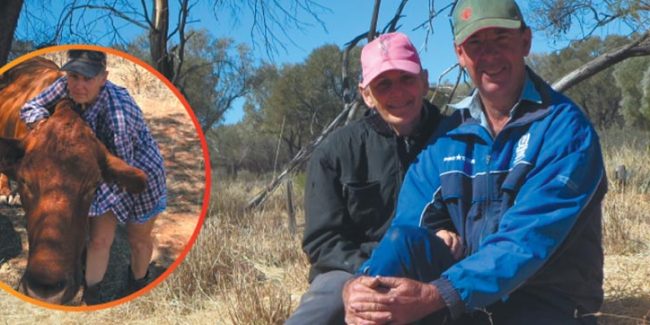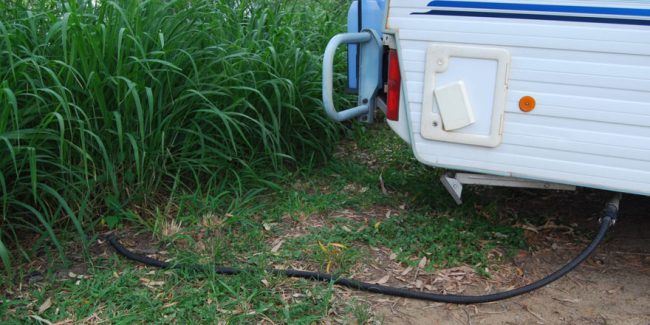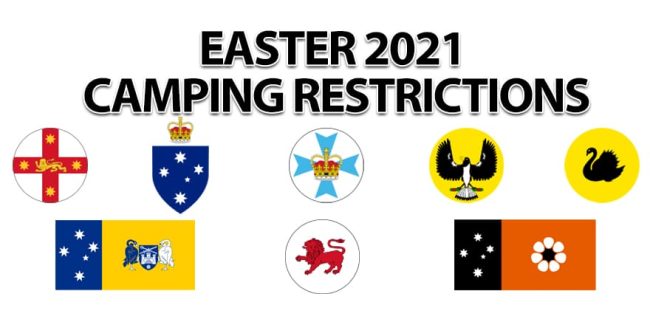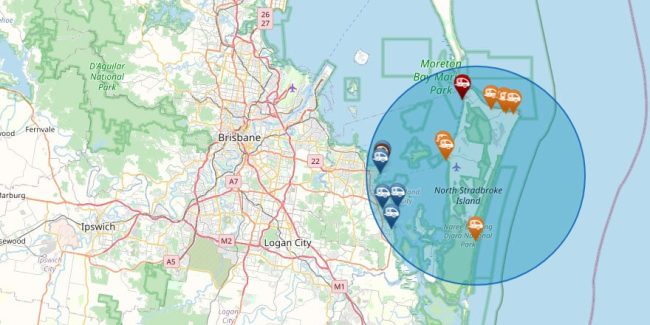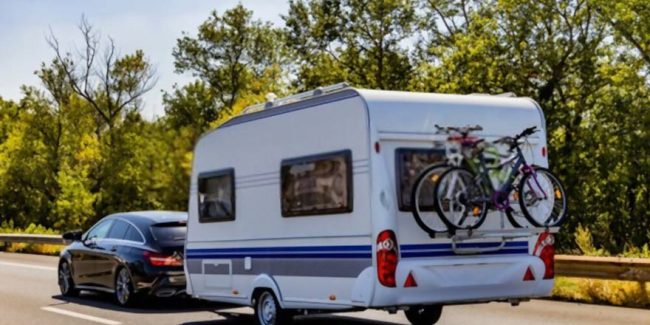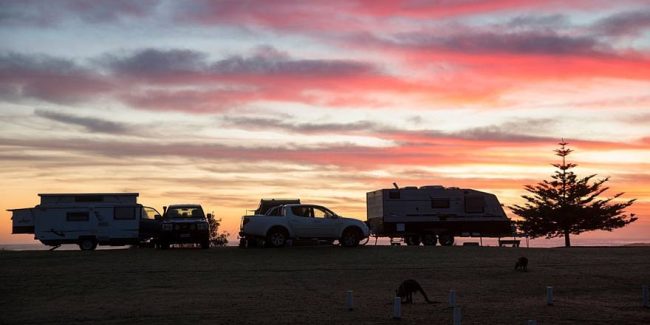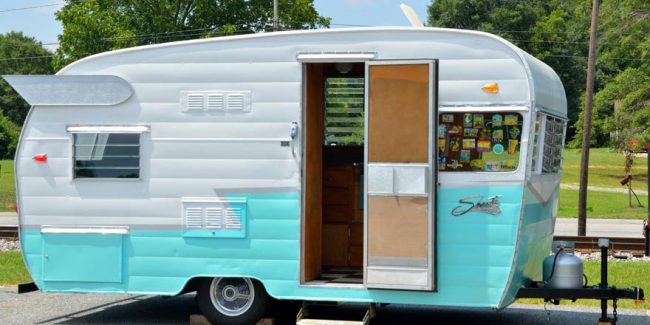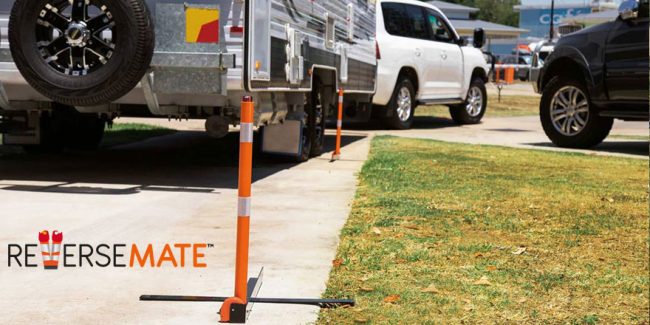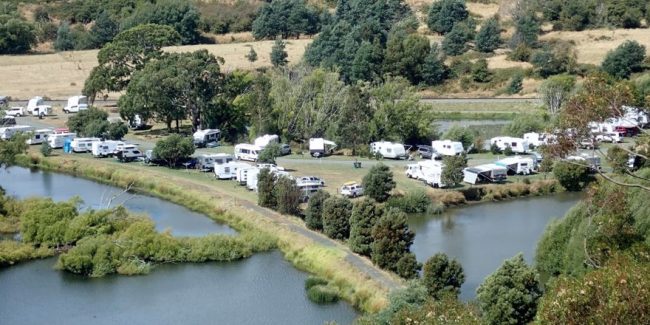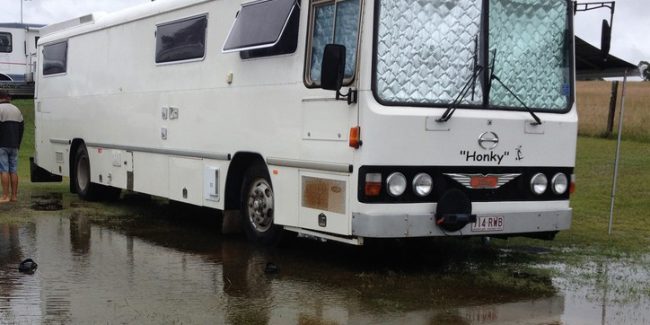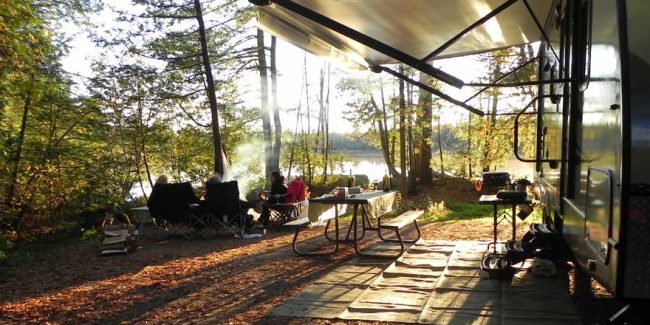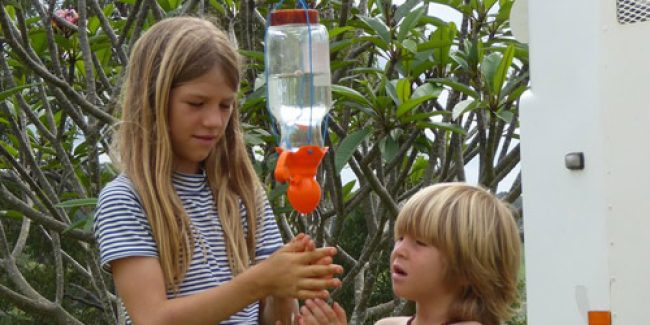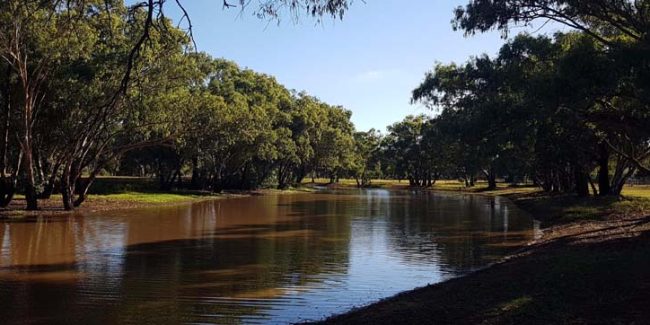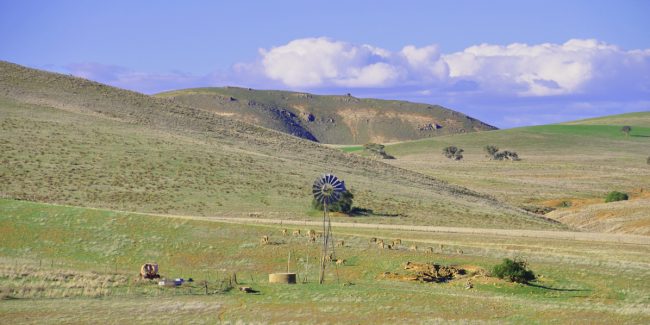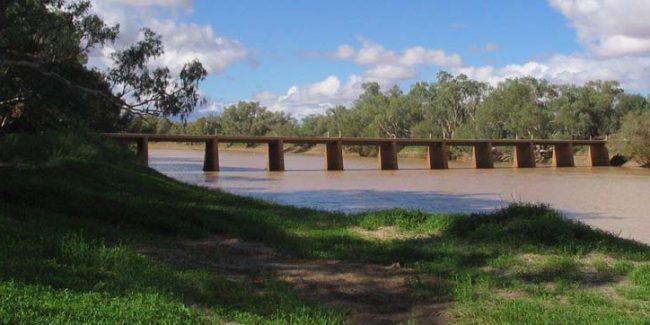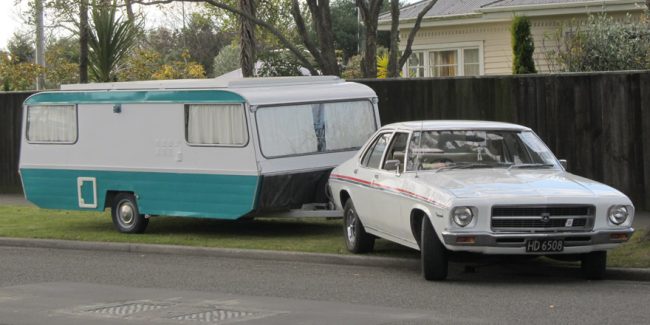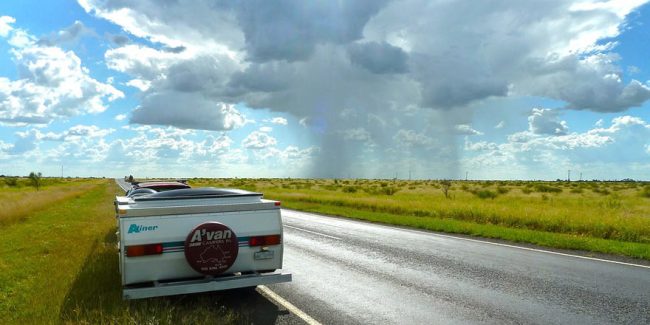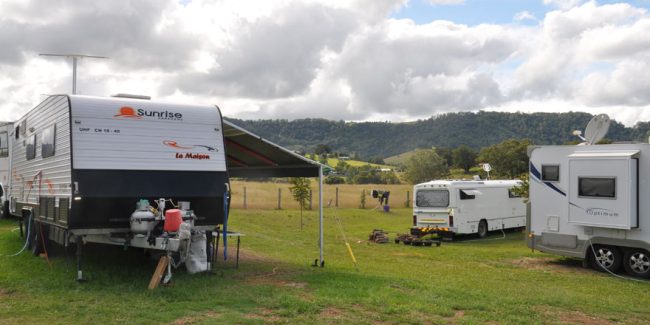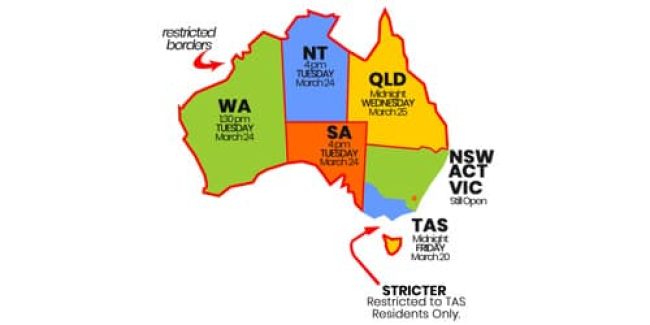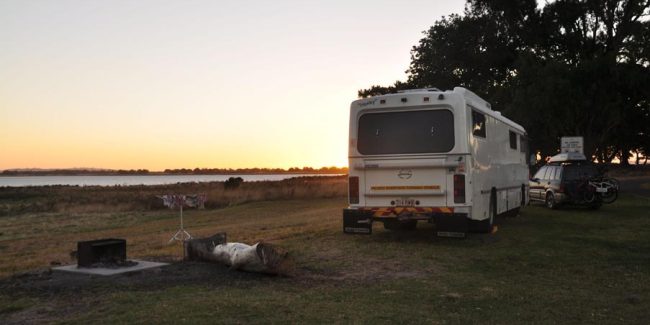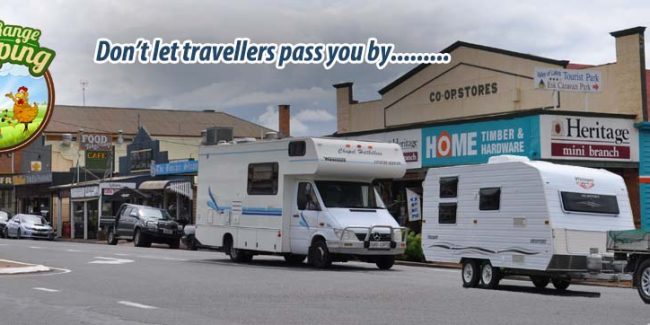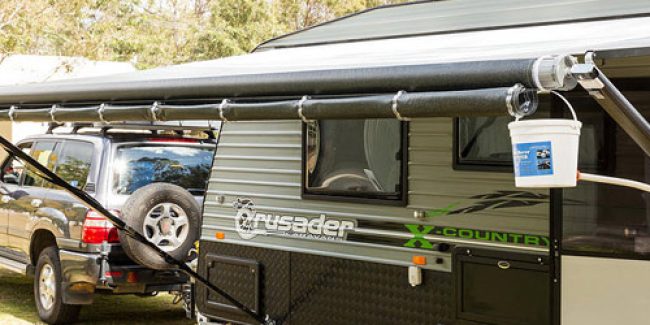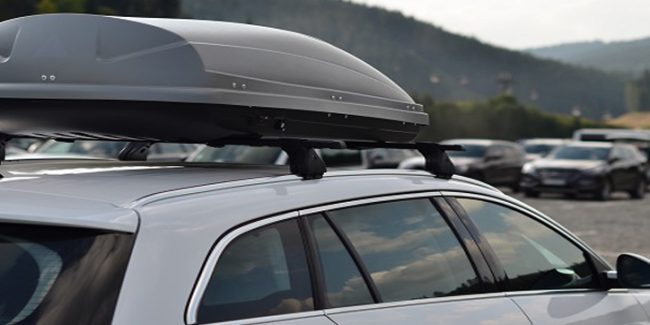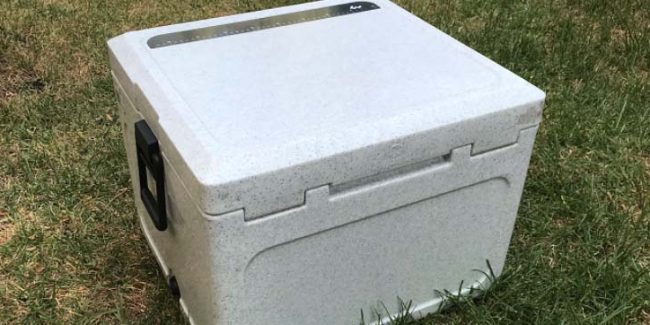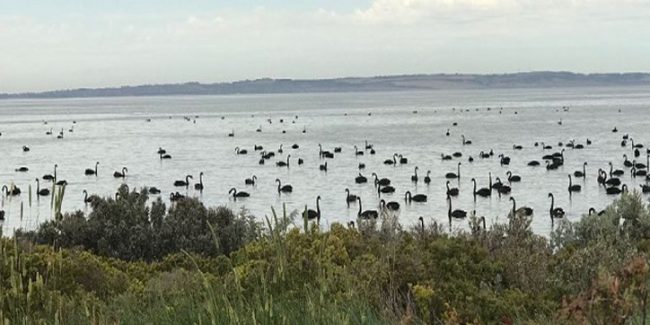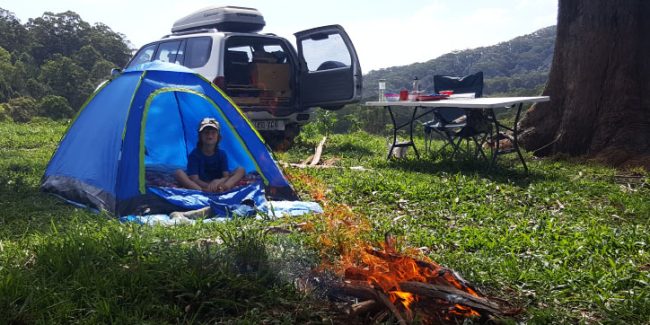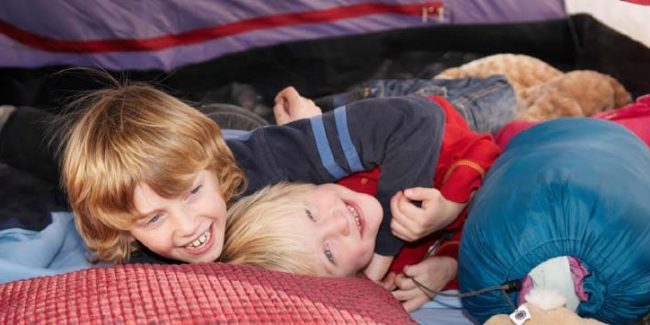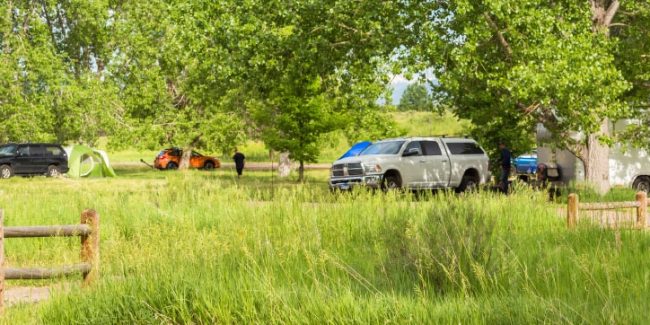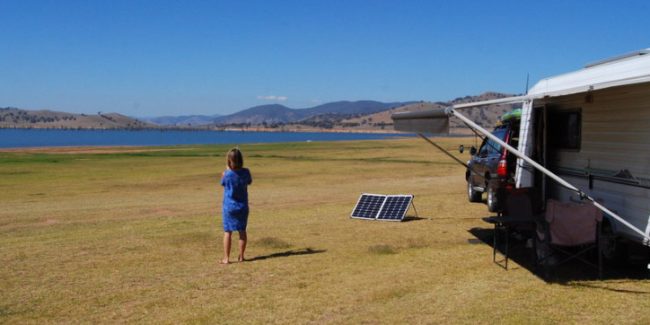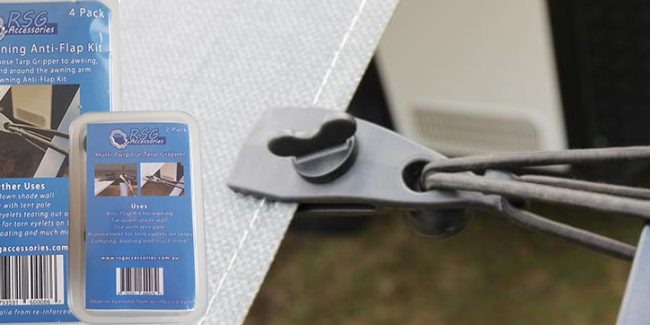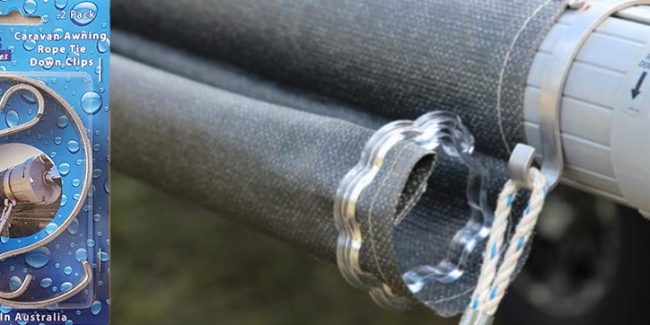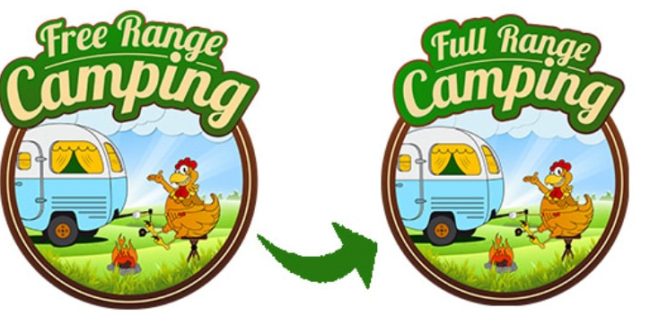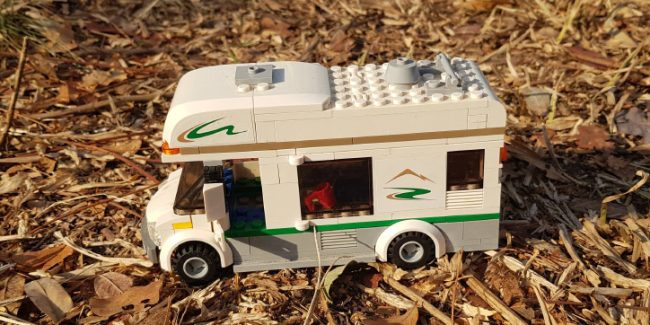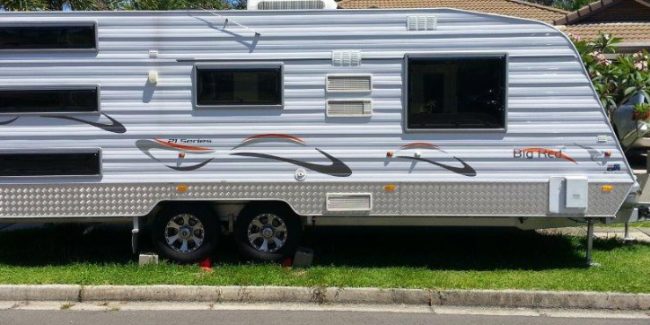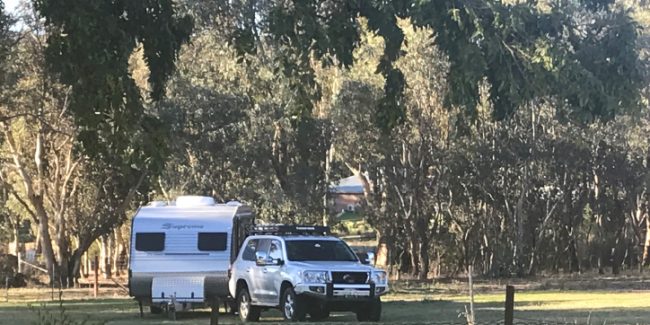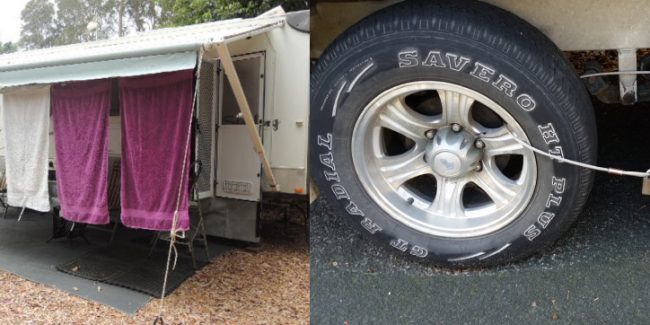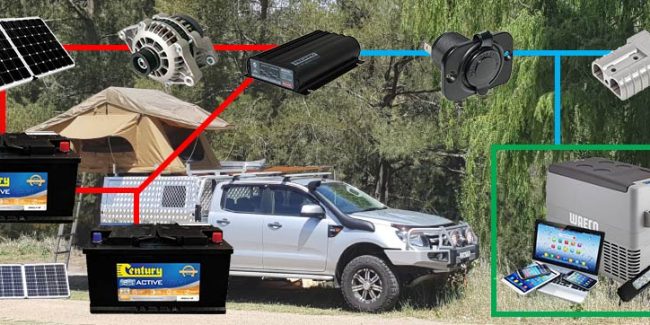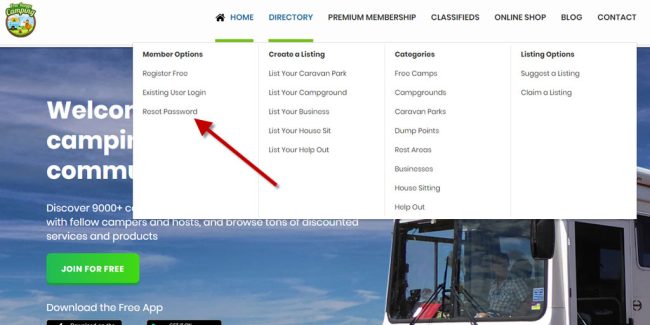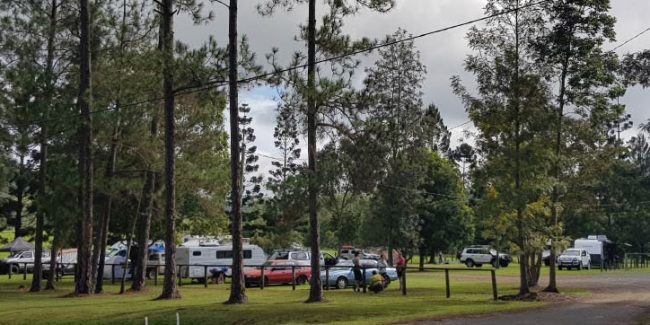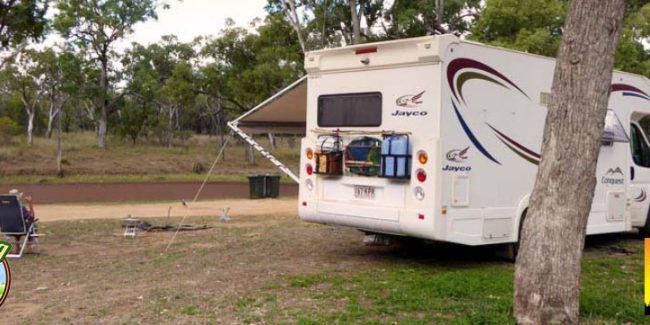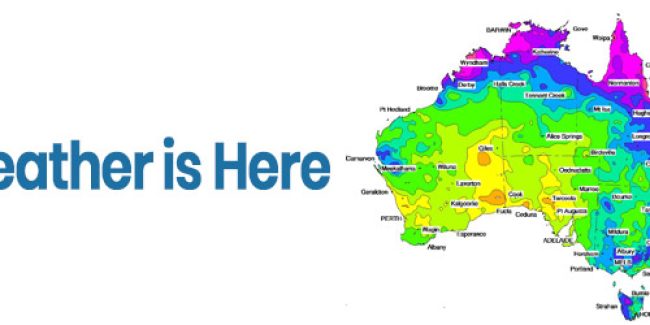OK, let me start off by saying that personally, we don’t travel with pets, much to my kid’s disappointment. Not many days go past when they don’t ask if they can get a dog. And it’s not to say we wouldn’t, it is just at this stage, we, and they, (the kids) are just not ready for the commitment that goes into travelling with pets.
Jade’s favourite adopted pet – Clancy
But, it’s not to say we don’t enjoy other people’s pets while we travel. In fact, not only have we collected many friends of the human variety during our travels, but the kids have managed to adopt many a pet along the way, and it’s not just dogs.
Jade making friends with someone’s pet bird @ Mataranka, NT.
Whilst by far the most popular travelling companion is the dog, we have also encountered many other pets along the way. So far our kids have bonded with dogs, birds, horses, and now have managed to hand feed and pat these cows. Which is great, except for their lack of toilet manners. (The cows, not the kids.)
Currently camping with the cows
So, whilst we personally fall into the category of ‘Pet Lovers that choose to travel without a pet’ we have observed there are predominately two main categories of travellers out there, ‘Pet Lovers that travel with pets’ and ‘non-pet lovers that don’t like being around pet lovers that travel with pets’ (By the way, I just made those categories up myself, for the benefit of this story) But, as we can often end up sharing the same campsite at times, this article looks at the topic of travelling with pets from both points of view.
For the pet lovers
One of our first realisations of the extremes pet lovers go to was only one week into our trip. We stopped off at a Showground in NSW and saw a fellow traveller in an old bus that had one of the most elaborate setups we have seen for his two dogs. And, they weren’t of the small variety. He had a timber platform and portable fencing that enclosed an area approximately 10m x 2m. It was great to see the effort he went to for his pets.
Since then we have gone on to see many such elaborate setups, but it is not to say you have to go to that extreme. Some pets, especially the smaller variety are fine on just a lead.
Keith & Frances with ‘Tess’ on the lead
And there are more and more campgrounds and caravan parks out there catering for pet lovers. Some have great pet enclosures ideal to let your pets run around. So, if you are considering travelling with a pet we have put together a list of things to consider.
The Chinchilla Tourist Park has a fantastic Pet area
Vaccinations
Most pet lovers will know how important it is to keep vaccinations up to date, even more so whilst travelling to new areas, but it is also a great idea to carry any proof of documentation that your pet is vaccinated in the event you are ever asked to provide this before being permitted into a campground or caravan park.
Diseases
As you are travelling into new areas it is best to be aware of any diseases or problems that may be prevalent in that area. In some areas, excessive Mosquito infestations may increase the possibility of heartworm infection. Tick paralysis can be rife in some regional areas, and Lyme disease, although not as common, can still be a major risk. Snakes are also another one to be careful of, and found in much of outback Australia.
Keep up to date with Heartworm & Tick Treatments
To avoid putting your pet at risk you should ensure you still get them checked regularly whilst travelling and that their flea and tick treatments are up to date. We are currently putting together a list of regional vets which will be added to the Free Range Camping directory to assist travellers in finding vets as they travel, but in the interim, a quick call to the local vet in the area you are in can better prepare you for anything prevalent in the area.
Look up the local vet and give them a call
National Parks
There is generally a blanket rule across all national parks in Australia that pets are not permitted. This is in order to protect native wildlife.
So, you need to be mindful, that if you are travelling to specifically see some of Australia’s National parks, access may be restricted and you may need to make other arrangements.
Signs usually make it quite clear if pets are not permitted
However, some states do allow certain areas where you can walk dogs on a lead through a National Park. For more detailed information on those parks, it is worthwhile checking out each state’s guidelines. We have included direct links for you below.
NSW National Parks
QLD National Parks
VIC National Parks
TAS National Parks
SA National Parks
WA National Parks
NT National Parks
Now, in some locations around the country, you can get lucky and find pet minding services located nearby to National Parks. Once again we are currently putting together a database of such services. But, in the meantime, if you get really stuck, you could always ask a fellow camper (preferably a pet lover) that is staying in for the day to look after your pets for you.
Henry looking after our neighbours dog in Esperance, WA
This happened to us while we were staying at Esperance in WA, we were asked to look after our neighbour’s pet dog while they went to the National Park for the day. The kids jumped at the chance and relished the experience, even more so when the owners returned with a small gift for each of them. Jade, being quite the entrepreneur quickly went out and made up some ‘Dog Minding’ signs in anticipation she was going to start her own business.
Pet-Friendly Camping Areas
More and more campgrounds and caravan parks these days are realising that many people travel with pets and do allow pets to stay. Whilst many call themselves ‘Pet Friendly’, the word amongst travellers is that they should perhaps just state ‘pets permitted’. Apparently, there is a difference, with some establishments going out of their way to make the owners and pets feel welcome, with designated areas and fewer restrictions. One such park is the Broome PCYC Campground which has a sign out the front stating ……
Sign at the PCYC Broome
Others simply allow pets to stay, with the usual clause, ‘Must be on a leash at all times‘ and will only just tolerate pets, but at least it means you have somewhere to stay.
To try and make life easier for Pet Travellers we have included an icon in the FRC Directory, both on the Free website and the App so you can seek out sites that specifically are ‘Pets Permitted’ locations.
You can filter by ‘Pets Permitted’ or ‘No Pets Permitted’
But to be 100% sure in all cases, we would suggest always ringing ahead to make sure you and your pets are welcome.
Leashes
If the requirement is that the dog should be kept on a leash, make sure you abide by these rules. In many cases, it does not take much to be evicted for breaching them.
Identification
Always make sure you have adequate ID on your pet. Many pets in strange and new locations may have the tendency to stray and if this happens unexpectedly you want to make sure you get your loved one back. A phone number on a tag is ideal for travellers so they car ring you direct, or if you would like a bit more security, the tracTAG id system may be a great solution as it allows you to put important information about your pets on a pre-registered website, so if they go missing and are located, the person finding them not only knows how to get in contact with you but also how to look after your pet in the meantime.
 Spend time with your pets
Spend time with your pets
Pets get lonely, especially if ignored. If you have gone to the trouble of taking your pet with you, make sure you include it as much as possible. Don’t just leave it tied up all day with no attention and getting bored. This may lead to excessive barking. If you have a dog, your pet may get into other mischiefs.
Campsite Etiquette
Remember, just because you love your pets, does not mean that everyone else automatically will too. Some people are just not pet lovers. It is important if we are sharing a campsite nearby we take this into consideration. Respect is the key here.
You will quickly come to realise if your neighbours are not pet lovers. If this is the case, rather than get angry, respect the fact we are all different and that is OK. If they were there first, perhaps look for another location. Or just do your best to make sure your pet does not ruin their experience. Who knows, perhaps a positive experience with your pet may change their outlook.
Tips
– Make sure your lead is the right length so that your pet will not encroach onto anyone else’s campsite.
– If you have a yapping dog, try to limit this the best you can. Your neighbour may be tolerable for a short time, but excessive yapping will not make them happy.
– Pick up their Poo. There is nothing worse than stepping in dog poo. It goes without saying, be vigilant. If they do a poo, pick it up ASAP to stop the smell or anyone else stepping in it.
No caption required
For the non-pet lovers
Now, for the non-pet lovers, and we have spoken to quite a few. Perhaps the two biggest gripes we hear from them are…
“ why we should put up with a yapping dog all day when we don’t have one”
followed by
“ I don’t want to be dodging dog sh*t everywhere”
Now, I am sure this can be somewhat embellished at times. I also have to say, there’s one occasion where we witnessed a traveller leave a small dog alone in a caravan for most of the day. Granted it was well vented, but the poor little fella barked from the minute they left till they returned later in the afternoon. It certainly did not make for a peaceful relaxing day by the campsite.
So, what should you do, as a non-pet lover? This is if you happen to land someone beside you who is clearly a pet lover?
Be Considerate
First and foremost, be considerate. Accept we are all different and some love their pets and cannot be without them. The idea is not to abuse them or ostracise them for this. If the person beside you is making an effort to keep their pets contained then appreciate this. Don’t be rude just because they are a pet owner.
Let someone know
If a certain behaviour is really bothering you, courteously speak to the owners. Ask them politely if they can do something about it. If you do not feel comfortable doing this yourself, speak to the campsite owners or managers to see if they can do it for you.
Select another Campsite
If pets really bother you that much, check to see if a site permits them or not before you settle in. Perhaps select campgrounds or caravan parks that you know will not permit pets. In that way, you can be assured that you do not land next to someone who travels with pets.
Filter your selection to suit your requirements
Whatever the case may be, travelling with pets or without, please make sure we each respect each other and remember we are all out to enjoy the same thing – a pleasant camping experience.
If you have any further tips or advice from either side of the fence, please feel free to share your comments below.


